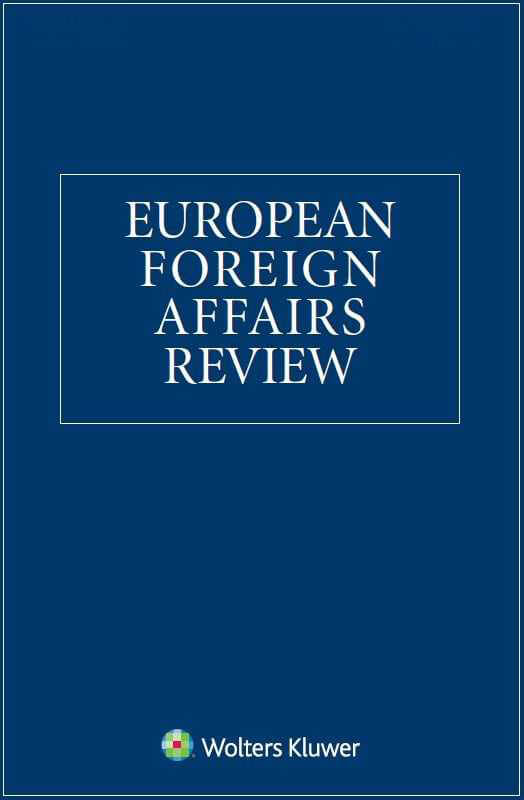Home > All journals > European Foreign Affairs Review > 26(3) >

$15.00 - Rental (PDF) *
$29.00 - Article (PDF) *
Nathanael Tilahun
European Foreign Affairs Review
Volume 26, Issue 3 (2021) pp. 477 – 498
https://doi.org/10.54648/eerr2021038
Abstract
The European Union’s Global Human Rights Sanctions Regime (EUGHRSR), adopted in December 2020, is expected to augment the Union’s role in global normative diplomacy. Although the Council has a long history of responding to human rights violations through geographic sanctions regimes, the EUGHRSR is the first thematic sanctions regime on the topic with a general scope of applicability. This article investigates what distinctive added value the thematic design of the EUGHRSR brings compared to the longstanding geographic approach. The EUGHRSR is envisaged as a more legalized accountability mechanism and its added value is presumed to lie in helping depoliticize sanctions by shifting the target focus away from states. The article shows that this presumption can be unattainable or undesirable as the successful implementation of the EUGHRSR necessitates bringing the state into the centre of analysis. The article in particular shows that in order to successfully deploy the EUGHRSR as an integral part of the EU common foreign and security policy, the Council has to (i) align the designation of targets with the EU’s foreign policy strategies, and (ii) take pro-human rights reforms in third countries as a ground for de-listing, even in the absence of individual accountability. Taking these positions, however, blurs the line between the EUGHRSR and geographic sanctions, therefore requires careful coordination and trade-off.
Keywords
damages, non-contractual liability, CFSP acts, normalization, CSDP missions and operations, restrictive measures, jurisdiction, CJEU, sanctions.
Extract
